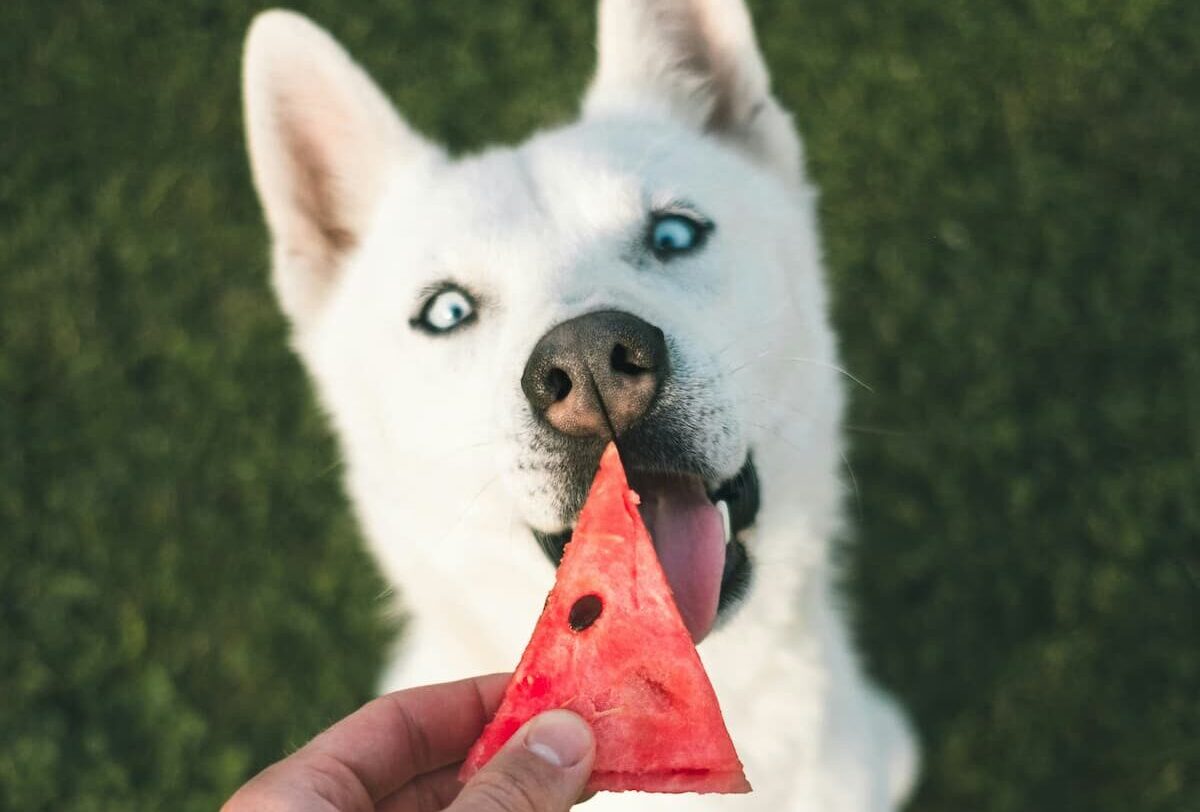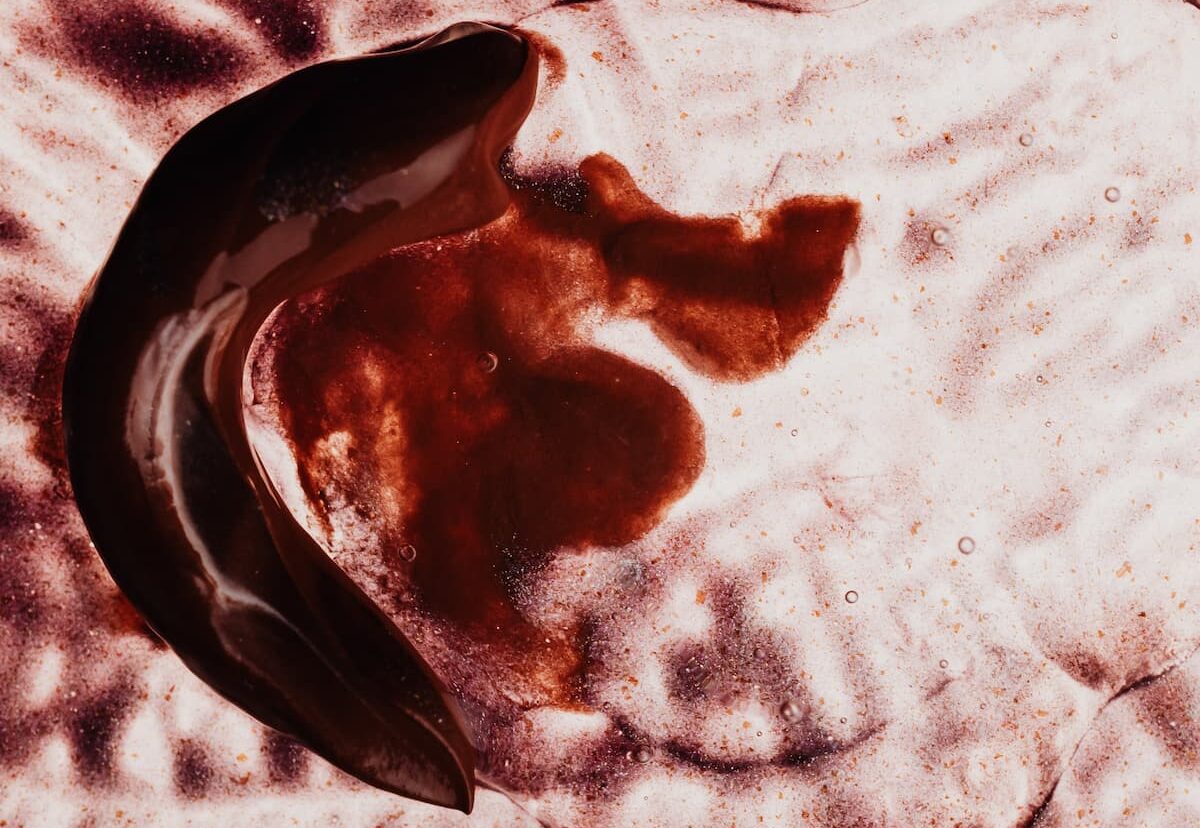Have you ever caught your furry best friend snooping around a fresh cut or perhaps licking a tiny drop of blood from their own wound?
It’s a startling sight, isn’t it?
But why, oh why, do dogs seem to have an inexplicable fascination with the taste of blood?
Read on to learn the gross facts behind this behavior.
Understanding the Biological Factors Driving Dogs’ Taste for Blood
A curious question that has puzzled dog owners for centuries: why do dogs like the taste of blood?
As intriguing as it sounds, this peculiar behavior can actually be attributed to various biological factors.
First and foremost, it’s important to understand that dogs are descendants of wolves, who relied heavily on hunting and scavenging for their survival.
This wild ancestry is deeply ingrained in their DNA and can shed light on their preference for blood.
Wolves, like dogs, are carnivores, and consuming blood offers them several essential nutrients that are not easily obtained from a diet solely consisting of meat.
Blood is rich in iron, proteins, and other vital components that contribute to the overall health and vitality of canines.
Moreover, dogs possess an incredibly acute sense of smell, with up to 300 million scent receptors, compared to a mere 5 million in humans.
Their noses are like powerful odor detectors, capable of detecting even the faintest scents.
This heightened olfactory ability allows them to perceive the iron-rich scent of blood from a significant distance, making it incredibly enticing to them.
It’s as if their noses are specially tuned to detect the iron content in blood, making it an irresistible delicacy that triggers their hunting instincts and gives them a sense of satisfaction.
Furthermore, it’s worth mentioning that dogs’ taste preferences are often influenced by learned behaviors and environmental factors.
Just like humans, canines develop certain taste preferences through exposure and experience.
If a dog has had positive encounters with blood, such as during a visit to the veterinarian or while enjoying a juicy meaty bone, they may associate the taste and smell of blood with pleasant experiences, reinforcing their inclination towards it.
This learned behavior can be particularly strong in dogs that have been exposed to blood in controlled and safe environments.
Some experts also believe that the behavior of liking the taste of blood could stem from a desire to please their owners.
If a dog observes its owner responding positively to the sight or smell of blood, they may associate this behavior with gaining attention or approval.
As a result, they may start to exhibit an affinity for the taste of blood as a means of seeking praise or rewards.
Practical Tips to Redirect Your Dog’s Blood-Related Fascination
So, your furry friend seems to have developed an intriguing interest in the taste of blood.
It can be quite disconcerting and may even leave you wondering why on earth your adorable companion has such macabre preferences.
The good news is, you don’t have to fret!
There are practical steps you can take to redirect your dog’s fascination and keep them away from potentially harmful situations.
Here are some tips to guide you:
1. Provide Appropriate Chew Toys
One of the most effective ways to redirect your dog’s blood-related fascination is by providing them with appropriate chew toys.
Opt for sturdy toys specifically designed to withstand the vigorous chewing of dogs.
Not only will this keep your pet engaged and entertained, but it can also satisfy their natural urge to explore different textures and flavors.
Remember to rotate the toys to prevent boredom and choose ones that resemble the texture your dog finds fascinating.
By offering enticing alternatives, you can gradually divert their attention away from blood-related objects.
2. Engage in Interactive Play
Another method to redirect your dog’s behavior is through interactive play.
Spend quality time engaging your pup in activities that stimulate their mind and body.
This could include playing fetch, teaching them new tricks, or even enrolling in obedience classes.
By actively participating in these activities, you’ll help redirect their focus away from blood-related interests and towards more positive outlets.
Additionally, incorporating puzzle toys or treat-dispensing games can provide mental stimulation, keeping your canine friend occupied and less likely to fixate on blood-related items or tastes.
3. Seek Professional Guidance
If your dog’s fascination with blood persists or escalates to concerning levels, it may be beneficial to seek professional guidance from a veterinarian or animal behaviorist.
These experts can offer specific advice tailored to your dog’s needs and potentially identify any underlying medical or behavioral issues that contribute to their obsession with blood.
Remember, each dog is unique, and finding the right solution may require some trial and error.
Be patient with your furry friend, and with time and consistency, you can help redirect their fascination towards healthier and more enjoyable activities.
FAQ
Q: What makes blood so appealing to dogs?
A: Dogs have an extraordinary sense of smell, among other remarkable sensory abilities.
Blood carries a distinct odor due to its high iron content, which our four-legged pals are highly sensitive to.
This iron-rich scent can be incredibly enticing for them.
Q: Is there a biological reason behind dogs’ attraction to blood?
A: Absolutely!
Our canine companions have evolved from their wild ancestors, who relied on hunting and scavenging for survival.
This evolutionary background has ingrained certain instincts in modern dogs.
The taste of blood, which often accompanies fresh meat, triggers their primal carnivorous instincts and reaffirms their natural desire for sustenance.
Q: Does this mean dogs are bloodthirsty or violent creatures?
A: Not at all!
While dogs may have a natural yearning for the taste of blood, it is important to remember that this preference does not make them bloodthirsty beings.
Dogs are, at their core, social animals and have been domesticated for thousands of years.
Their affectionate nature and loyalty to humans far outweigh any curiosity they may have about blood.
Q: Are there any health concerns with dogs consuming blood?
A: Typically, occasional consumption of small amounts of blood does not pose any significant health risks for dogs.
However, if a dog excessively ingests blood or consumes it from questionable sources, it could potentially lead to health issues, such as stomach upset or infections.
As responsible pet owners, we should always be mindful of what our dogs are consuming and ensure they have a balanced and appropriate diet.
Q: How can we manage a dog’s fondness for blood?
A: If you find that your canine companion has a particular attraction to the taste of blood, it’s essential to redirect their behavior appropriately.
Providing them with structured meals containing a variety of nutritious foods should help satisfy their primal instincts while maintaining overall health.
Additionally, engaging them in stimulating activities, such as puzzle toys or training exercises, can distract them from fixating on their taste for blood.
Q: Can we blame the dog’s love for blood on us, their human companions?
A: Well, as much as we love our pups, we can’t be held responsible for their innate preferences.
Our furry pals have been carrying these instincts since their wild ancestry.
It’s not that we’ve taught them to like blood, but rather it’s simply a part of their biological makeup.
Q: What else do we need to understand about dogs that like to taste blood?
A: Understanding dogs’ natural inclinations, such as their attraction to blood, helps us appreciate and care for them better.
Remember, dogs have adapted to be our best friends, and their taste for blood is just a remnant from their wild heritage.
So, next time your pooch shows interest in the taste of blood, it’s important to separate their primal instinct from their loving nature towards you.
To Sum It Up
In conclusion, my dear dog enthusiasts, it seems that the seemingly peculiar taste buds of our furry friends are grounded in their primal instincts.
Despite living in domestic bliss with us, dogs retain certain traits from their ancestors, the mighty wolves.
Their fondness for the taste of blood can be attributed to their carnivorous nature, where the consumption of raw meat would have been a frequent occurrence.
While our pooches may not be dining on fresh prey these days, their taste for blood persists as a vestige of their heritage.
So the next time your furry companion licks his chops at the sight of a juicy steak or shows a peculiar interest in a cut on your finger, remember that it’s simply a glimpse into their wild past.
Rest assured, dear readers, that your dog’s cravings for blood are nothing to be alarmed about.
They are just a charming reminder of the amazing creatures that they are, and a testament to the remarkable journey that dogs have taken from their wolfish beginnings to becoming our loyal, slobbery best friends.
Cherish the uniqueness of each characteristic that your canine pal possesses, for it is what makes them the furry, adorable wonders that we adore.












